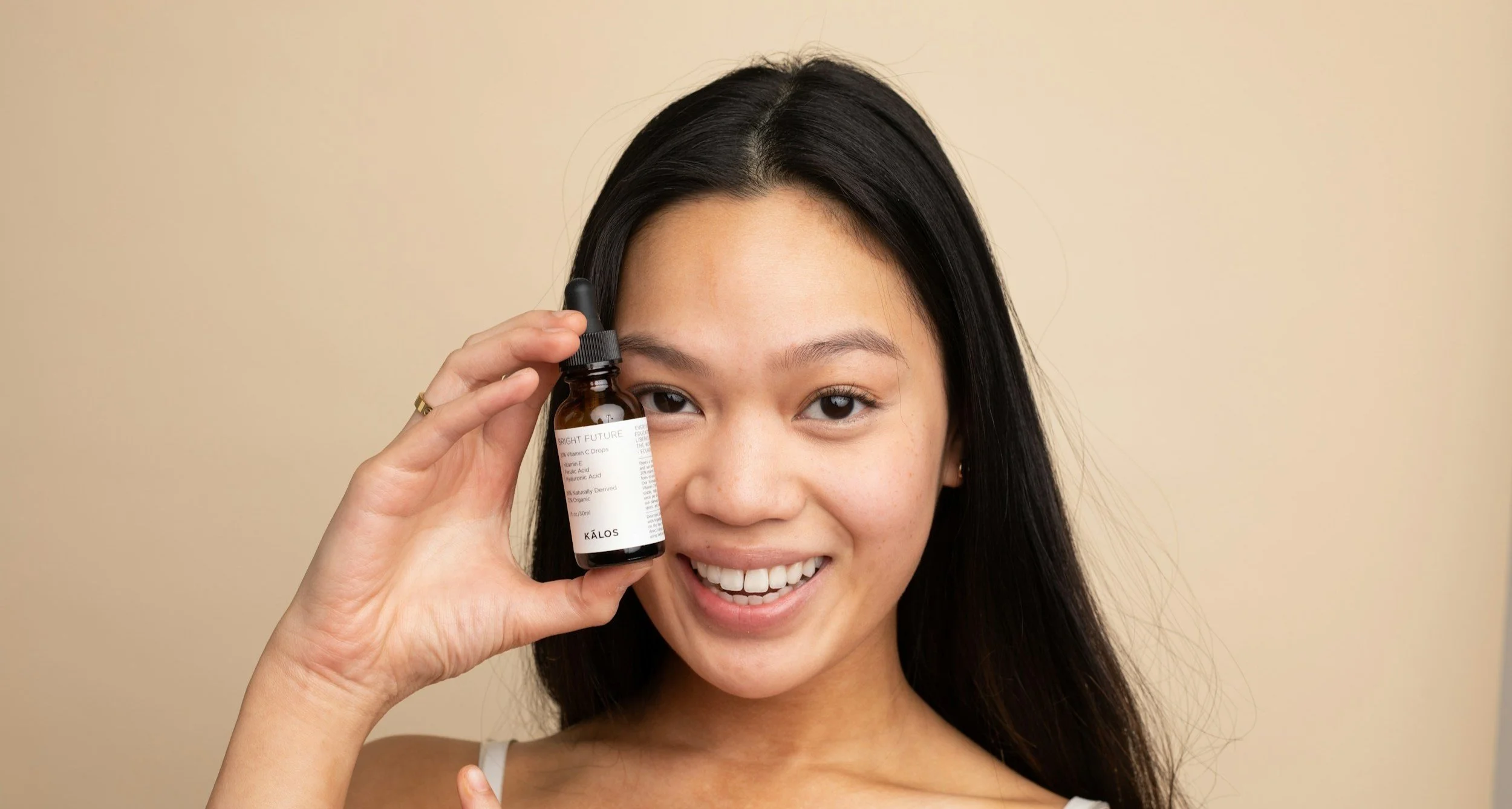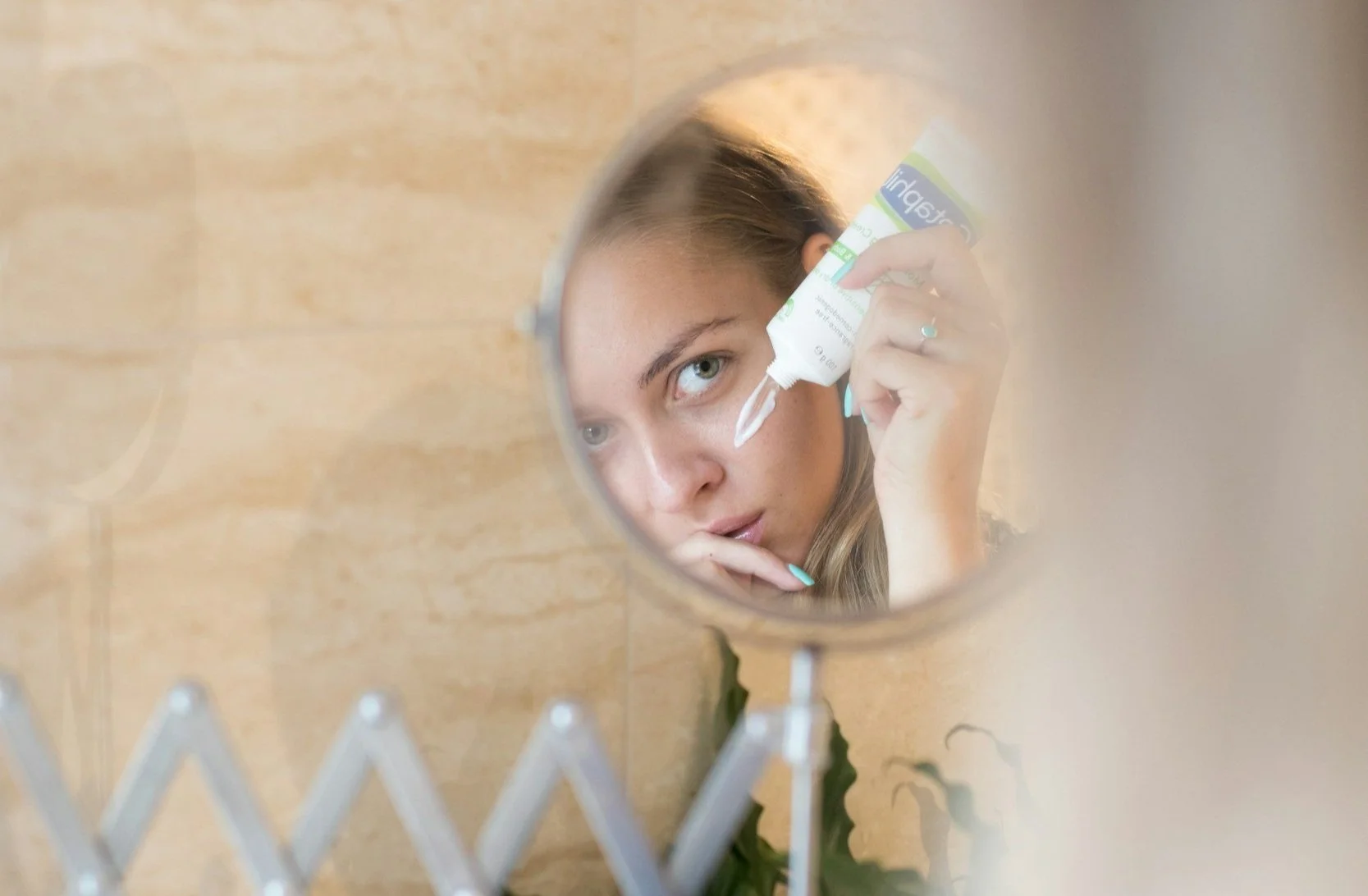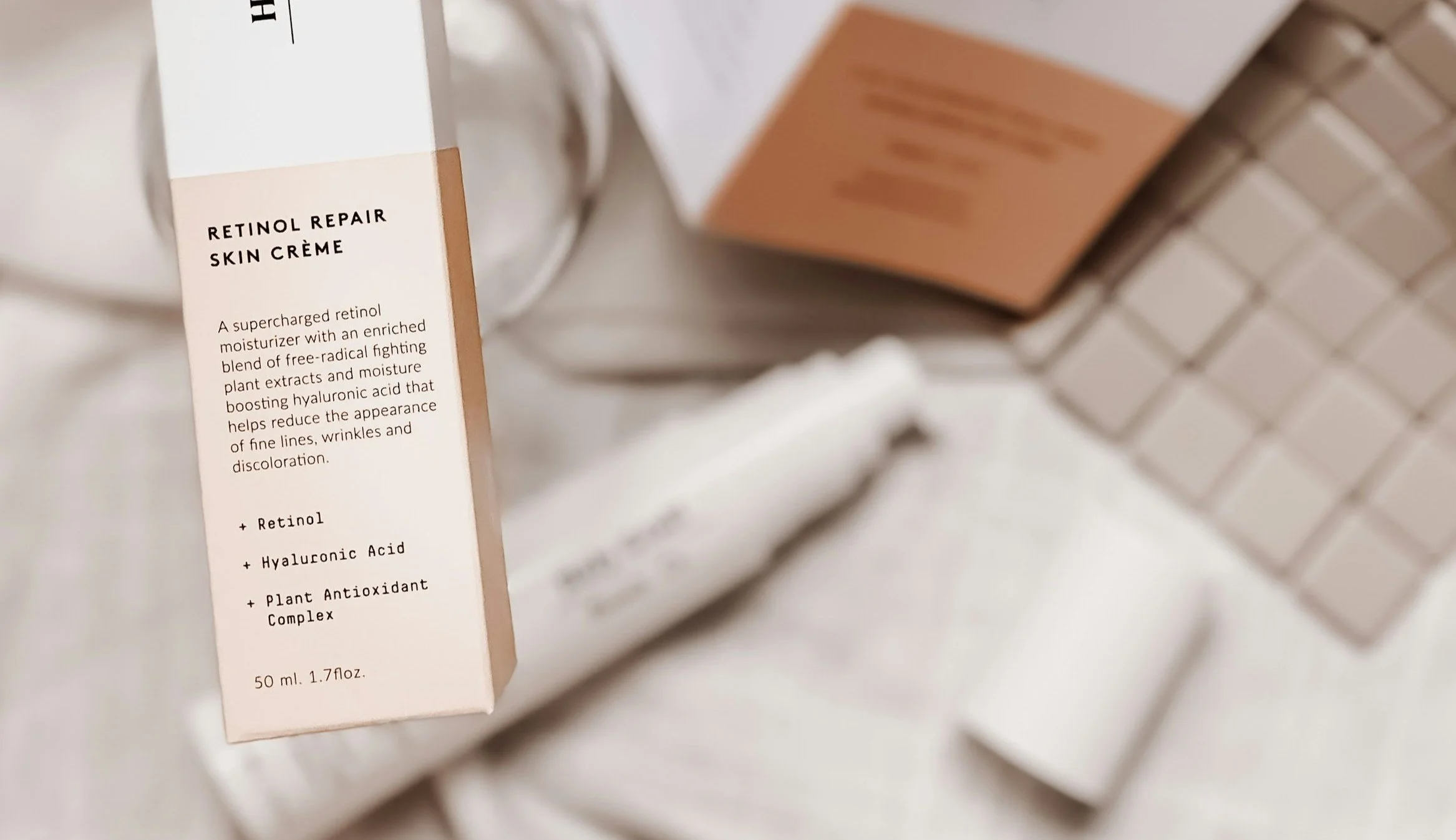Your Ultimate Guide to Retinol
AS AN AMAZON ASSOCIATE I EARN FROM QUALIFYING PURCHASES.
------------------------------------------------------------------------Are you looking to step up your anti-aging skincare routine? If so, retinol could be a good addition to your arsenal. If you’re interested in learning more, this comprehensive guide will walk you through everything you need to know about this skincare ingredient, including:
What is Retinol?
Retinol, a derivative of vitamin A, is a fat-soluble vitamin belonging to the retinoid family that is often used in skincare due to its anti-aging properties. When applied to the skin, retinol goes through a 2-step conversion process and converts into retinoic acid, the active form that your skin can use. Once converted, retinoic acid works at a cellular level to create visible changes in your skin's appearance and health, such as normalizing cell function to prevent pore clogging or signaling your cells to increase turnover rate (see “Retinol Benefits”).
Retinol is generally gentler than prescription retinoids like tretinoin (which is already in the active retinoic acid form). Because of this, it can take some time to see the effects of retinol on your skin (sometimes 8-12 weeks of consistent use). But this also means that retinol can be obtained over-the counter as opposed to requiring a prescription. Woo!
Retinol Benefits
Retinol has long been a super star in the skincare world and it’s so common to hear about it in products. But what does it ACTUALLY do for your skin? Below are some of the key benefits of using retinol that make it such a popular ingredient:
1. Accelerates Skin Cell Turnover
Retinol speeds up your skin's natural renewal process, helping you shed dead skin cells more efficiently. This increased cell turnover leads to:
A brighter and more even skin tone
Smoother skin texture
Improved absorption of skincare products
2. Enhances Collagen Production
One of retinol's most notable benefits is its ability to boost collagen production. In doing so, the essential protein:
Reduces the appearance of fine lines and wrinkles
Improves skin firmness
Enhances skin elasticity
3. Refines Pores and Helps Control Acne
Regular use of retinol can help:
Minimize the appearance of enlarged pores
Regulate sebum/oil production
Prevent pore blockages that lead to breakouts
4. Regulates Abnormal Melanin Production
Reduces the appearance of hyperpigmentation and other dark spots
Fade acne scars and other post-inflammatory marks
Potential Side Effects of Retinol
While retinol has the ability to provide great results for your skin, it may not be right for everyone. It’s important to be aware of its potential side effects so that you can be prepared if they happen to you and decide if it’s a good option for you to continue using.
Some common reactions to retinol include:
Slight redness and irritation
Dryness and peeling or flakiness
Skin sensitivity (especially during the day when you’re exposed to sunlight)
Skin “purging",” which is a slight breakout phase that may occur as your skin gets used to the retinol
Oftentimes these reactions are temporary and pass after a few applications as your skin gets used to the retinol. However, if these skin reactions persist or seem severe, stop use of retinol and allow your skin time to recover. You may even consider consulting a professional for advice on next steps.
If you’re new to retinol, below are some tips for minimizing the risk of the potential side effects:
Start with a low concentration (0.25-0.5%) and then work your way up if your skin can handle it
Start usage at a low frequency (ex. every third night) and then use more frequently if it’s ok with your skin
Apply to completely dry skin to help minimize irritation
Buffer the retinol with moisturizer — mixing the retinol into your moisturizer and then applying it to your skin helps dilute its concentration and slow down absorption, minimizing potential irritation
Always use sunscreen during the day — this is a MUST to protect your skin as it becomes more sensitized with retinol use
Best Practices for Incorporating Retinol Into Your Routine
If you’re wonderingn how to use retinol, it’s not much different from other skincare products. Depending on what form it comes in (ex. serum, moisturizer, oil, …), you can incorporate it into the appropriate step of your nighttime skincare routine. However, below are some best practices to be aware of:
Best Practices:
Start slowly - start with using retinol only 1-2 times per week until you’re sure your skin can handle it. Only then should you try upping the frequency or concentration
Only apply in the evening - since retinol sensitizes your skin, you should try to avoid using it when you know you’ll be out in the sunlight.
Use a pea-sized amount - a little retinol goes a long way. A pea-sized amount is generally enough to cover the entire surface of your face and neck, while not being too much that it could cause irritation.
Wait several minutes between skincare steps - this allows for maximum effectiveness of the retinol as the retinol doesn’t get diluted by subsequent products and it has time to fully absorb into your skin.
Pair it with nourishing ingredients - retinol has a tendency to dry out your skin and make it more sensitive. As such, it’s benefitial to accompany it with hydrating and nourishing ingredients, hyaluronic acid and ceramides, to counterbalance retinol’s side effects.
Store it properly - It’s important to keep your retinol products in a cool, dark place to maintain stability and effectiveness. You’ll be able to tell it’s bad if the color starts changing drastically or it takes on a bad odor.
Best Retinol Products for Different Levels
Retinol Beginners:
Beginner users should typically stick with over-the-counter products with low concentrations (0.01-0.03%), particularly those buffered with soothing ingredients like niacinamide or ceramides.
Advanced Users:
Once your skin has adjusted to retinol, you can try moving to higher strength retinol products or consider prescription retinoids like tretinoin.
Who Should Avoid Retinol?
As mentioned earlier, retinol may not be for everyone. Exercise caution if you:
Are pregnant or breastfeeding
Have extremely sensitive skin or a damaged skin barrier
Are using acne medications that sensitize your skin or specifically contraindicate use with retinol
Are planning to be out in the sun for significant amounts of time
And when in doubt, please consult a professional to determine whether retinol is a good option for you.
Hopefully you now feel a bit more empowered to incorporate retinol into your skincare routine. While it requires patience to see visible results, the long-term benefits of using retinol for your skin health and appearance make it worth the effort. Just remember to start slowly, listen to your skin, and enjoy the journey to more youthful skin. ✨





